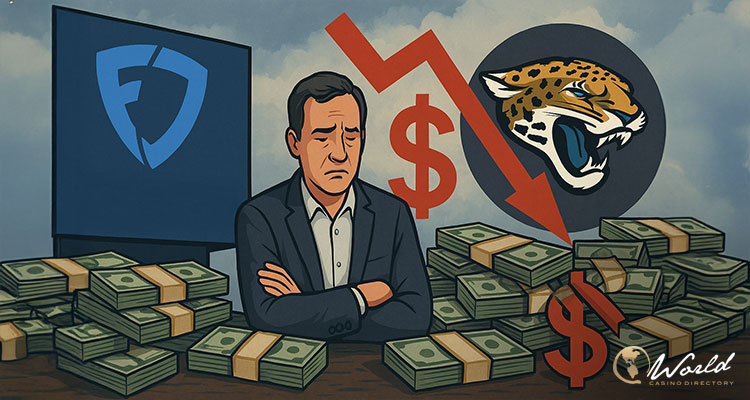In a significant development related to a high-profile embezzlement case, FanDuel has reportedly agreed to pay the Jacksonville Jaguars $5 million to help cover losses incurred from a fraudulent scheme involving former team employee Amit Patel. This deal, finalized earlier in 2025, aims to compensate the team for nearly $20 million Patel misappropriated, much of which ended up in the hands of the sportsbook operator. The agreement, first disclosed by ESPN, was reached after months of discussions and avoids what could have been a costly legal battle.
The Embezzlement Scheme
According to the Associated Press (AP), Patel, who served as the Jaguars’ financial manager, was convicted in 2023 for stealing $22 million through the team’s virtual credit card system, which employees used for business expenses. His role as the overseer of the team’s financial transactions allowed him to exploit the system to his advantage. He manipulated internal accounts by inflating charges for everyday expenses, such as catering, airfare, and hotel stays, thereby making the fraudulent transactions appear legitimate. Patel’s actions went undetected for over three years, from September 2019 until February 2023, when his excessive gambling activity on daily fantasy sports platforms raised red flags within the NFL.
Patel’s gambling involved extensive deposits at FanDuel, where he placed large wagers on daily fantasy sports contests. According to court filings, he deposited nearly $20 million into his FanDuel account, while also transferring an additional $1 million to DraftKings. His gambling activities were underpinned by money he had stolen from the Jaguars, further complicating the case.
In response to his criminal activities, Patel was sentenced to 6.5 years in a federal prison in South Carolina. However, his legal battles did not end with his conviction. Patel filed a $250 million lawsuit against FanDuel in October 2024, claiming that the sportsbook operator failed to adhere to responsible gambling protocols and anti-money laundering measures. Patel alleged that FanDuel was well aware of his status as an NFL employee and should have known that the money he used to gamble was not obtained through legitimate means.
Patel’s gambling addiction, which he cites as the driving force behind his actions, has been a focal point of his case against FanDuel. However, federal prosecutors have rejected this defense, pointing out that Patel had a lavish lifestyle funded by the money he embezzled. They highlighted his spending on luxury items, including private jets, expensive cars, and even cryptocurrency, suggesting that his behavior was driven by greed rather than addiction.
Meanwhile, the Jacksonville Jaguars have continued their legal pursuit of Patel. In July 2024, they filed a lawsuit against him in Florida state court, seeking damages totaling over $66 million, including interest, investigation costs, and related losses.
Resolution Between FanDuel and the Jaguars
The settlement between FanDuel and the Jaguars marks a resolution to what could have turned into a drawn-out legal dispute. As a partner of the NFL, FanDuel was keen to resolve the issue without further damaging its reputation or causing prolonged litigation. While the deal avoids additional legal complications, the Jaguars have yet to comment on the agreement, and FanDuel has also remained tight-lipped about the settlement.
The NFL reportedly encouraged both sides to come to an amicable resolution, though it did not actively participate in the negotiations. One source revealed that FanDuel’s decision to settle was driven by a desire to maintain a positive relationship with the league. Although the Jaguars declined to comment, the resolution appears to signal an end to the immediate financial disputes.
Despite the settlement, Patel’s legal entanglements are far from over. His lawsuit against FanDuel remains unresolved, with the company seeking arbitration based on its terms and conditions, which Patel is bound to. The outcome of these ongoing legal battles will likely continue to draw attention, particularly in the context of responsible gambling practices and corporate accountability.


